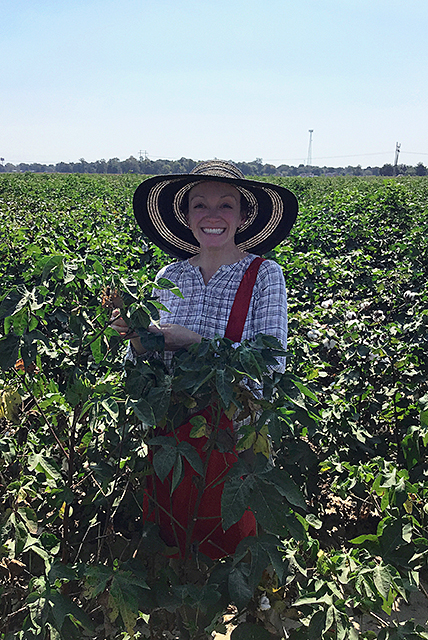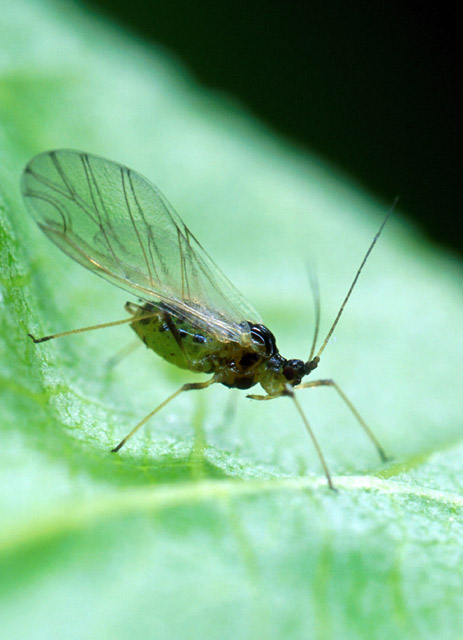
Plant, Insect Viruses Work Together To Spread Disease
In what may be a first for science, researchers with the Agricultural Research Service (ARS) have found an example of plant and insect viruses working together to increase their spread.
Michelle Heck, an ARS research molecular biologist, was leading research into poleroviruses, a type of plant virus spread by aphids, when she and Cornell University graduate students Jenny Wilson and Patricia Pinheiro made the surprising discovery. Heck is in ARS's Emerging Pests and Pathogens Research Unit at the Boyce Thompson Institute, on the campus of Cornell University, in Ithaca, NY.
"Poleroviruses produce a molecule, called P Zero (P0), which dampens the aphid's immune system," Heck said. "When the aphid immune's system is turned down, it allows an aphid virus called a densovirus to infect the insect at very high levels."
 Molecular biologist Michelle Heck, of the ARS Emerging Pests and Pathogens Research Lab in Ithaca, NY, scouts for aphids. (Photo by Jennifer Wilson, Cornell University, D4502-1)
Molecular biologist Michelle Heck, of the ARS Emerging Pests and Pathogens Research Lab in Ithaca, NY, scouts for aphids. (Photo by Jennifer Wilson, Cornell University, D4502-1)
Densoviruses have a curious effect on aphids: Aphids usually develop wings when the weather begins to cool, but densoviruses can induce the insects to sprout wings. When poleroviruses and densoviruses interact in this way, it allows them to carry the polerovirus farther and faster.
"We think this is the result of evolution," Heck said. "Both the plant virus and the insect virus have evolved to manipulate the aphid. Our work shows they are in cahoots to promote virus spread, though possibly at the aphid's expense."
The research is vital to crop producers because aphids transmit more than 100 different viruses to peaches, tomatoes, potatoes, apples, cotton, cabbage, corn, and other plants. In particular, the potato leafroll virus can reduce the worldwide potato yield by more than 50 percent, causing the loss of 20 million tons of crop each year. There is a new and emerging polerovirus infecting cotton, cotton leafroll dwarf virus, that Heck and her team are now studying.
 An alate (winged) green peach aphid, Myzus persicae. (Photo by Scott Bauer, K9602-1)
An alate (winged) green peach aphid, Myzus persicae. (Photo by Scott Bauer, K9602-1)
"Aphids are resistant to many commonly used insecticides, so chemical treatment is not effective in killing them and blocking the spread of viruses," Heck said. "By the time a farmer notices aphids in the field, it is too late to block the spread of these viruses by aphids."
Follow-on research includes a quest to understand how the polerovirus protein, P0, suppresses the aphid's immune system at the molecular level. Heck is also looking at exactly how the densovirus triggers the aphid to grow wings.
"We now know that poleroviruses can interfere with the aphid's immune response to densoviruses," she said. The question Heck hopes to answer is, can the densovirus infection be made so severe that it kills the aphids, and if so, could it be used as a biological control tool? – By Scott Elliott, ARS Office of Communications.
